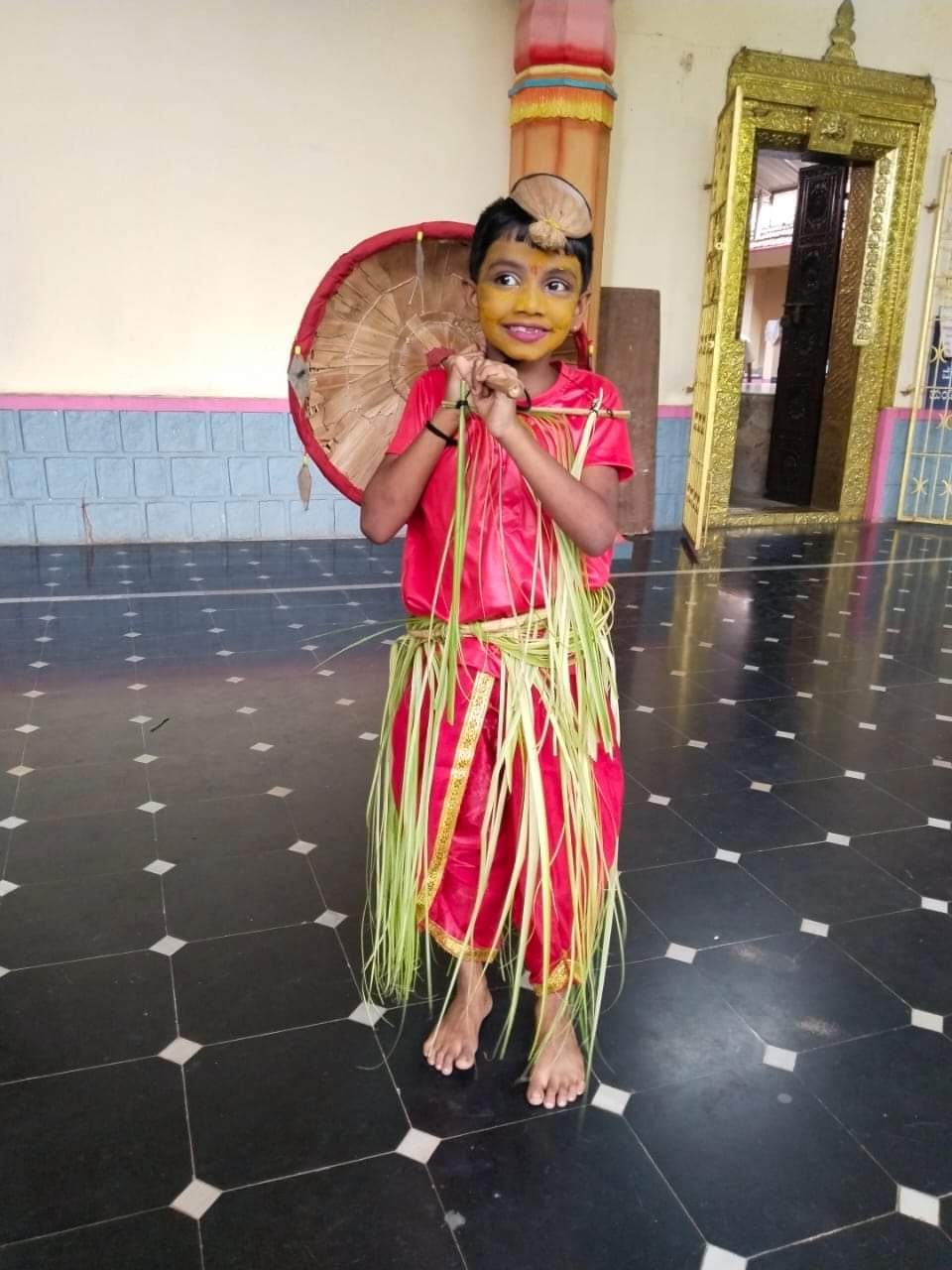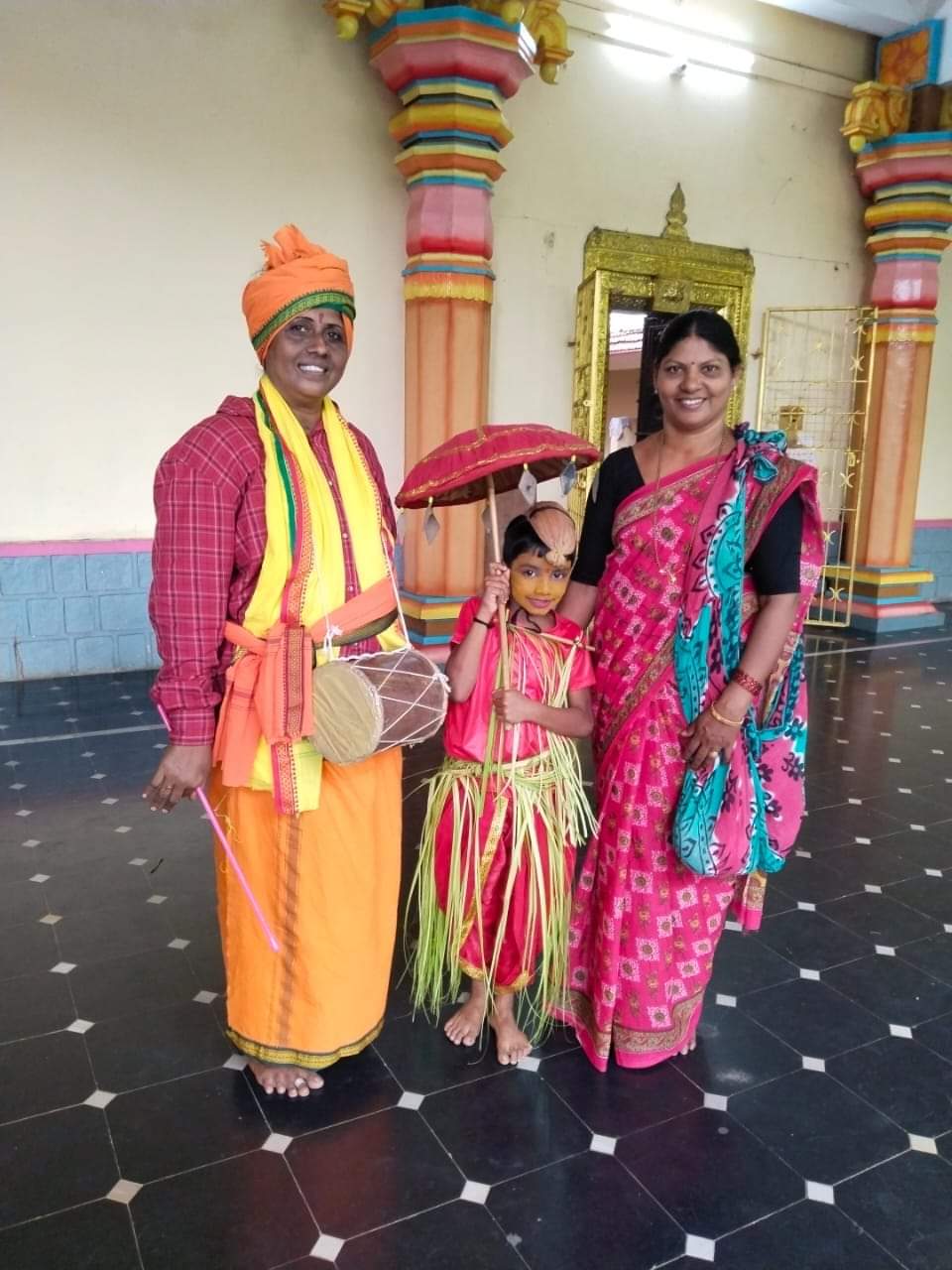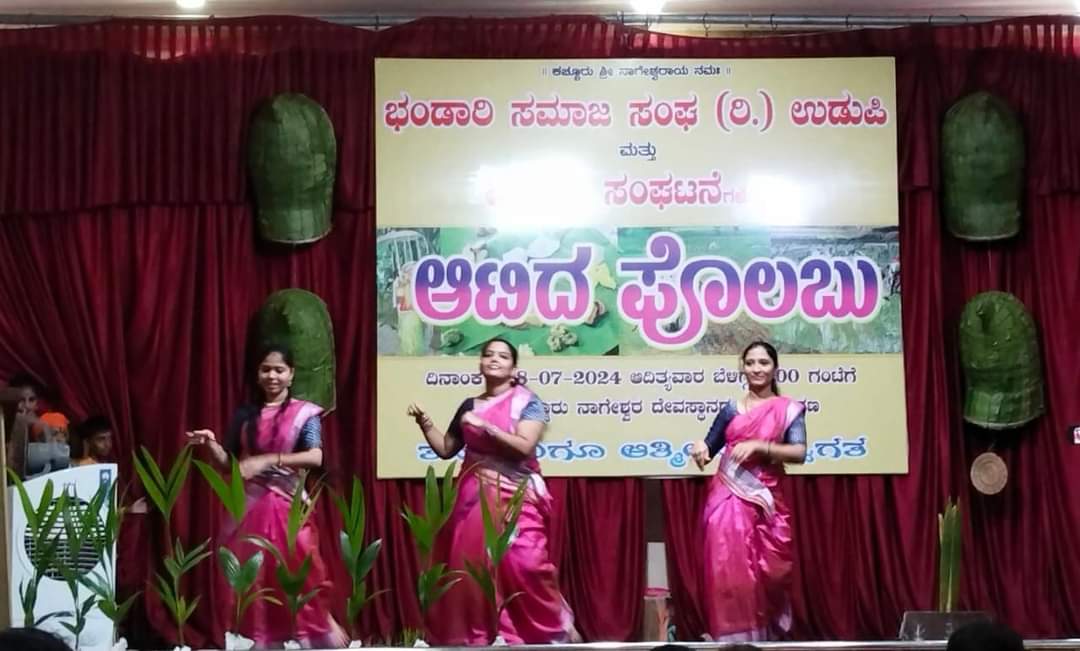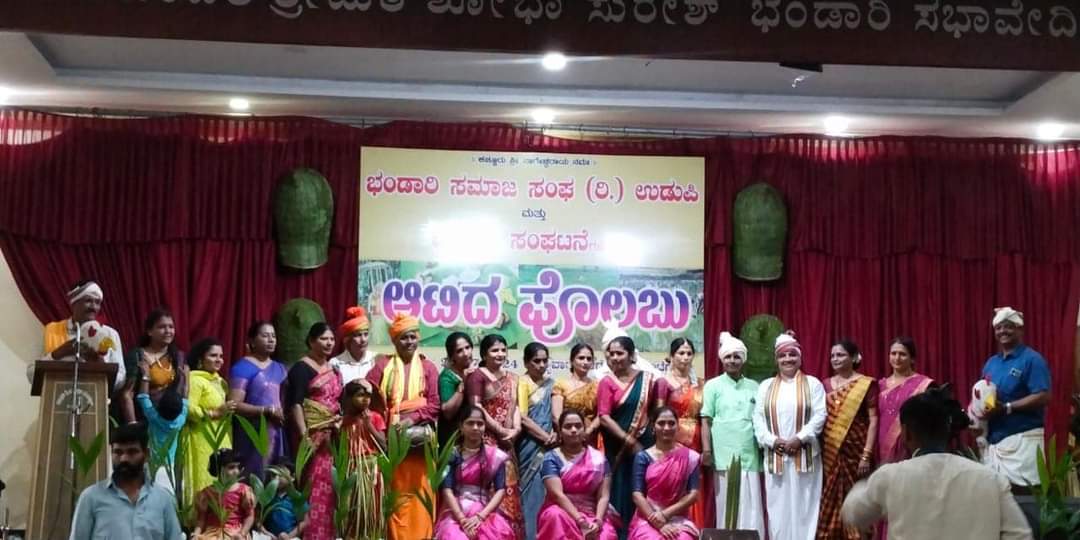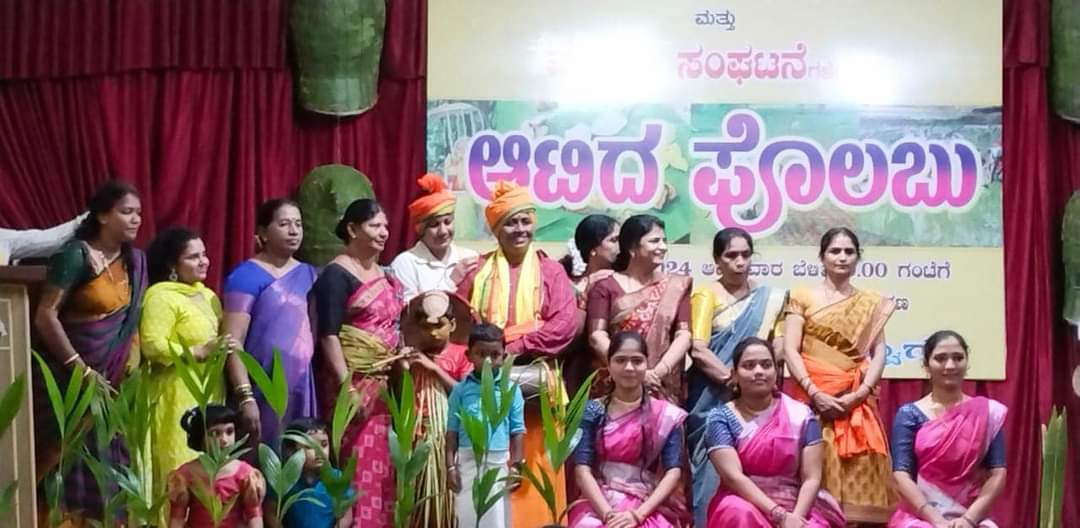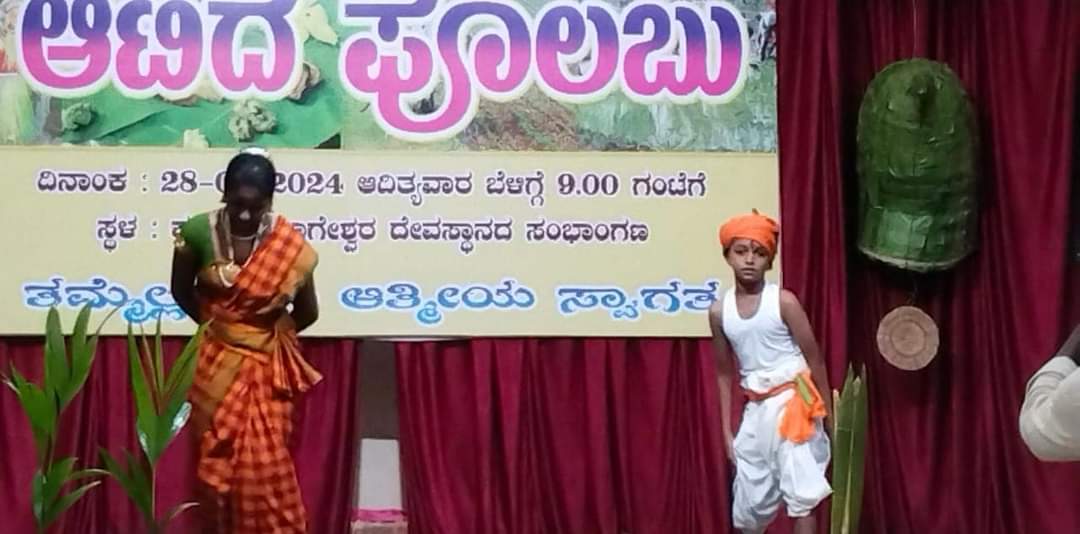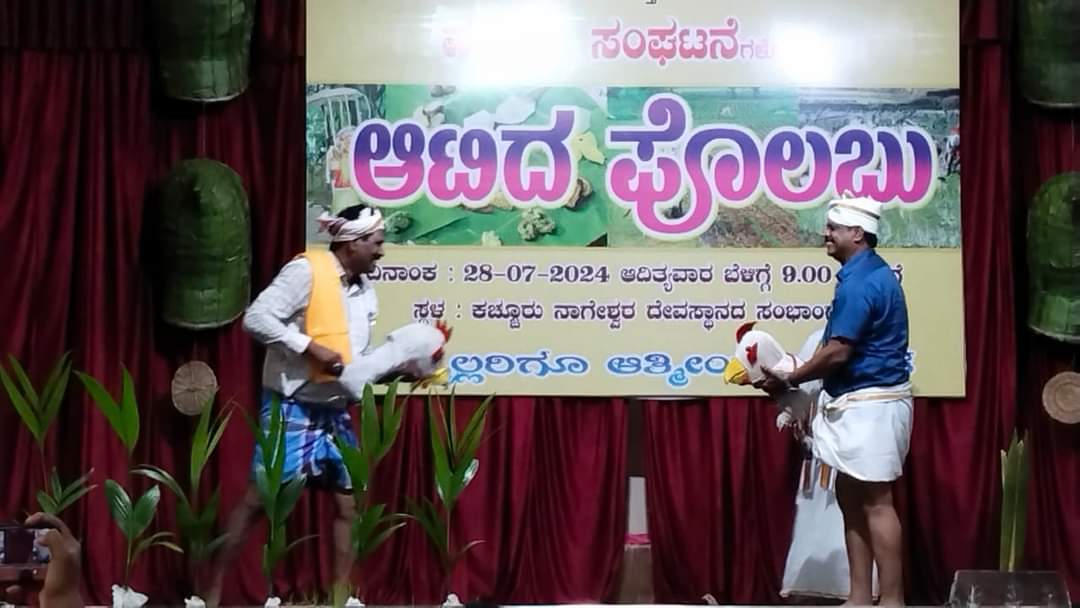-Anand Kumar Barkur
In a vibrant display of cultural preservation, the Bhandari Samaja Sangha (Registered) of Udupi and its Women's Organization recently hosted a special event called "Aati Polubu" at the assembly hall of the Sri Nageshwara Temple in Barkur Kachur. This unique celebration aimed to revive and showcase the rich traditions of Tulu Nadu, particularly those associated with the month of Aati (Ashadha in the Hindu calendar).
The event featured a diverse array of activities, including traditional games, sports competitions, and cultural performances that were once prevalent in Tulu Nadu. Adding to the authenticity of the experience, a variety of special Tulu cuisine was prepared and served, enhancing the event's appeal and providing attendees with a true taste of the region's culinary heritage.
Historically, the month of Ashadha, known as Aati in Tulu Nadu and Asadi in Kundapura, was a challenging period for the local population. Decades ago, this monsoon month often brought food scarcity and difficulties. However, as modernization progressed, the hardships associated with this time have largely faded into memory.
The organizers of "Aati Polubu" sought to remind people of this bygone era while highlighting the ingenuity and resourcefulness of their ancestors. During Aati, when stored grains were depleted, people relied heavily on locally available plant-based foods. This necessity-driven diet inadvertently incorporated many ingredients with medicinal properties, a fact that the event aimed to bring to light and share with the wider world.
One of the key attractions of the celebration was the "Aati Kalanja" performance, a special dance form unique to Tulu Nadu during the Aati month. This traditional dance is believed to have protective powers, warding off ailments common during the monsoon season such as colds, coughs, fevers, and mosquito-borne diseases.
The event organizers emphasized the importance of preserving such cultural practices while adapting to modern times. They stressed that while change is inevitable and necessary, it's equally crucial to pass on cultural heritage to future generations. These celebrations serve as a vital link to the past, ensuring that valuable traditions and knowledge are not lost to time.
Attendees and organizers alike expressed their gratitude for initiatives like "Aati Polubu," recognizing their role in cultural preservation. In an age of nuclear families and rapid societal changes, such events provide a unique opportunity for younger generations to experience and appreciate the customs of their forebears.
The success of "Aati Polubu" underscores a growing awareness of the need to balance progress with cultural preservation. As one organizer noted, "We must make necessary changes with time, but alongside these changes, we must carry our culture forward to the next generation. Celebrations like these are absolutely essential for this purpose. Without them, we risk forgetting everything as time passes."
This revival of Tulu traditions not only serves as a reminder of the region's rich cultural tapestry but also highlights the wisdom embedded in age-old practices. From sustainable food habits born out of necessity to communal celebrations that strengthen social bonds, events like "Aati Polubu" demonstrate the enduring relevance of cultural heritage in modern times.
As the monsoon rains continue to pour over Tulu Nadu, the echoes of the Aati Kalanja dance and the flavors of traditional cuisine linger, bridging the gap between past and present, and ensuring that the unique culture of this region continues to thrive for generations to come.
